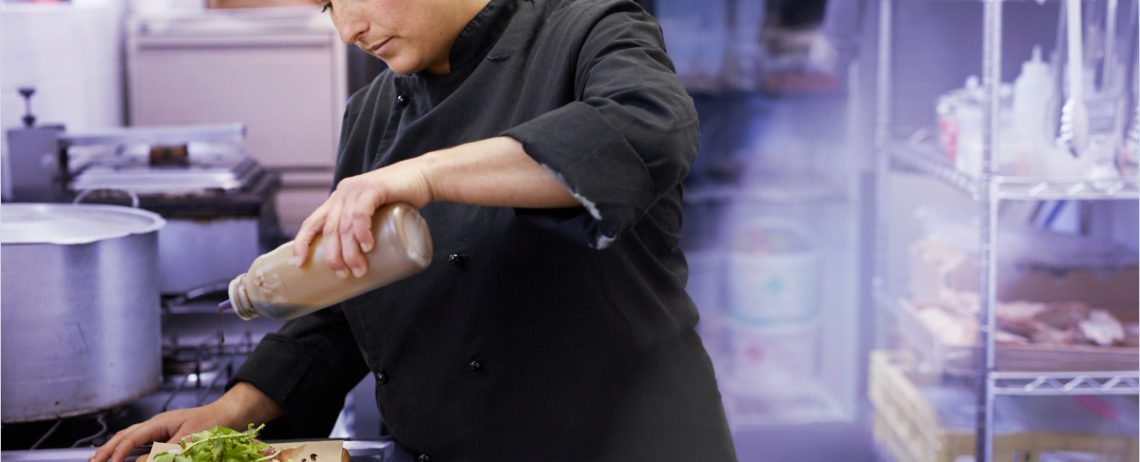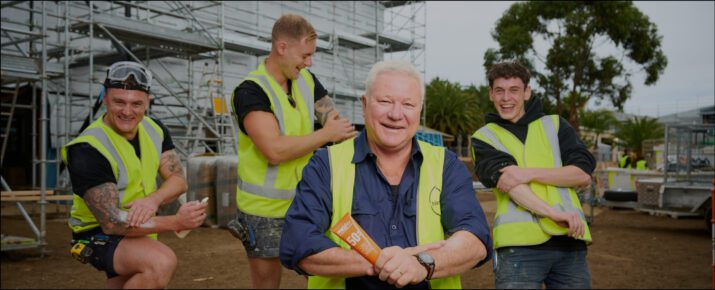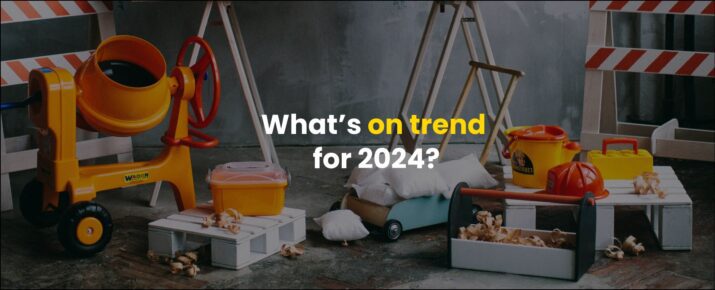Reopening safely: Getting back to work in tourism, events, and catering
Industry Trends | By | 24 Jun 2020 | 5 minute read

When COVID-19 took hold, the effect spread across the hospitality industry. Businesses closed, suffered huge losses, and thousands lost their jobs.
Even for businesses that remain open, there are challenges around every corner. With less tourism, the economic impact has stretched to even the most popular brands. Customers are choosing to save their money, protect their health, and stay indoors – this has led to many innovative solutions in the hospitality industry. The industry is adapting at a rapid pace. Here’s how business in tourism, events, and catering are responding, and how they’ll need to continue to change to survive:
How the tourism industry is responding to the pandemic
The tourism industry has been profoundly affected by the pandemic.
With most flights grounded for an unspecified period of time, hotels and accommodation providers have lost significantly, with some smaller independent owners potentially having to give up their livelihood.
With no business travelers or tourists, hotels are starting to market their services to different audiences. For example, offering hotels to medical staff as a place to stay, utilizing bed space for affected COVID-19 patients as hospitals fill up, and offering spaces to the homeless. A hotel in Tokyo is even using robot-staff to look after mild COVID-19 cases.
As domestic travel opens back up, winning local business is the primary focus for many accommodation providers, targeting those who decide to take a short trip in their own country.
Property upgrades
The central focus for many during quiet periods is property upgrades. Measures may include installing hand sanitizers, setting elevator restrictions, installing protective screens, and reducing or eliminating common areas.
From a commercial perspective, it may make sense to improve the aesthetics of your facility at this time to make them more attractive when reopening is encouraged.
However, this doesn’t need to come at the cost of public safety. Ensuring commercial growth in a pandemic is possible, for those who can be most flexible and adaptable about their service provisions.
Virtual tours
Taking steps to encourage safe future travel can be a great way to generate business post-COVID-19. This can be done through virtual property tours and highlighting what steps your business has taken to ensure risk is kept to a minimum.
It’s important for hospitality companies to build trust so customers can see and believe that you are taking new measures seriously. Showing off special areas of your hotel and new design layouts will help facilitate customer loyalty.
One London hotel has designed a virtual walkthrough of their spaces since the pandemic hit, taking you through their restaurants, lounges and lobby, and a superior double room.
Keeping guests safe
In hotels especially, it may be appropriate to consider what guests may like in their rooms to help them stay safe and COVID-19 free. This may include offering a package of face masks, hand sanitizer, and gloves. It could also be a good idea to remove amenities that are difficult to be sanitized correctly, so books, magazines, and pens.
Implementing a rigorous cleaning schedule is imperative for every hospitality owner, and may have to be reviewed every hour, or even more, depending on the amount of guests.
Hotels that have already reopened in Spain are facing tough challenges, according to a Guardian article:
“We’ll change all hotel services to ensure minimum contact. Kitchens will be transformed to reduce handling and we’ll be demanding maximum guarantees from service providers. It is a radical change.”
Manuel Vegas
Spanish Association of Hotel Directors (AEDH)
Travelodge, a UK-based hotel chain, says that it has already begun installing Perspex glass on front desks and placed two-meter/ six-foot tape markings in the reception area in the 50 Travelodge hotels that are still open.
Global giant Hilton Hotels are exploring the use of electrostatic sprayers, which uniformly mist disinfectant across large areas, as well as potentially using ultraviolet light to sanitize surfaces and objects.
New protocol for staff
Supplying PPE for cleaning staff is paramount, as is the requirement for deeper cleaning of bed sheets, towels, and other communal-use items.
The American Hotel and Lodging Association have released new industry-wide safety measures, that include using hand sanitizers with up to 60% alcohol content.
So how will hotels and B&B’s manage with these new guidelines? It may mean restructuring daily regimes so that more time is allowed for cleanings between bookings, and that there is a strict protocol to follow during checkout that covers specific hygiene standards.
Keeping events and catering industries safe
The events and catering industry are stepping up to meet new hygiene requirements post-COVID-19.
Smaller groups of gatherings
With most events being restricted and even canceled, we will start to see the introduction of smaller gatherings in the future, incorporating strict social distancing measures. The pandemic has paved the way for live streaming events, which is radically shifting the events sector.
As events resume, large-scale social gatherings may be on a long hiatus. The events industry may see the rise of smaller weddings, socially distanced funerals, and smaller groups for birthday parties.
It’s not enough to just be compliant anymore. With events, the spread of a virus could turn catastrophic in a number of weeks, or even days.
Hygienic packaging
By introducing hygienic packaging which can be easily cleaned, offering clear evidence of safe food handling, and giving contactless delivery to customers, this all serves to provide the end-user with a sense of trust and safety.
This has a huge impact on those businesses who were moving towards reusable and sustainable alternatives; for example bamboo cutlery.
Moving away from single-use plastics may be a challenge as new measures may prioritize human health over environmental aims.
Our handy set of checklists will help you implement safety as your number #1 priority.
- Movie Theatre reopening checklist
- Safely back to business checklists
- Church reopening checklist
- Kitchen Operations Checklists
- Social Distancing Plan
- Hazard Identification Templates
- Best Risk Assessment Templates
- Mobile-Ready Food Truck Inspection Checklists
How hospitality leaders can get safely back to business
It’s time to put safety first, across the board. Hospitality businesses that are transparent about hygiene measures will gain the loyalty and trust of their customers as we emerge from a post-COVID-19 world.
iAuditor is your very own early warning system
With the simple-to-use digital checklists in the iAuditor app, you can digitize your existing guidelines or select from thousands of predefined checklists.
Empower employees to conduct daily or hourly inspections and act on issues as they arise with iAuditor’s list of safety checklists around business continuity, stopping the spread, and getting back to business.
Balance commercial growth and public safety
Public safety and commercial growth are not mutually exclusive. An integrated culture of public safety can be achieved whilst sticking to predefined measures.
Getting back to trading safely is top of everyone’s agenda, despite concerns about an additional ‘second wave’, or even the chance that the pandemic could be transmitted in your hotel, restaurant, or bar.
A simple checklist can change the world
Business continuity checklists can help you weather the crisis quickly and efficiently, with guidelines for both staff and customers.
Did you spot a surface that hasn’t been sanitized, or notice a face mask missing from a guest welcome pack?
With iAuditor’s inspections feature, you can set up checklist forms in minutes, add logic to make your forms smarter, and record and track safety action items. Share with a colleague at the tap of a finger.
Build a robust safety culture
By assigning everyone in your organization accountability, iAuditor allows you to assign actions to specific team members, ensuring everyone adheres to the new hygiene and safety procedures.
With iAuditor’s actions features, you can spot a task that needs to be completed, assign it to a team member, and alert them with an email, SMS, or a push notification. It also allows you to track and report.
85% of our customers get problems solved faster with iAuditor. Join us as we build a new safety culture in 2020 and beyond.
Get back to work safely and quickly with a variety of free hospitality checklists to help you mitigate new standards, which include:
- Hotel Reopening Checklists
- Hospitality – Hotel Safety & Security Inspection
- COVID-19 – Hotel Operational Guidelines Checklist
- COVID-19 Hospitality Industry Task Sheet Checklist
- Social Distancing Plan
- Top 6 Workplace Housekeeping Checklists
- Cleaning Schedule Templates
- Best Risk Assessment Templates
- Top 3 PPE Safety Checklists
- Movie Theatre reopening checklist
- Safely back to business checklist
- Church reopening checklist
- Hazard Identification Templates
- Mobile-Ready Food Truck Inspection Checklists
- Cafe and Restaurant Reopening
- Top 5 Food Safety Checklists
- Daily Food Safety & Hygiene Checklist
- Hospitality – Bar Re-Opening Checklist
- 6 of the Best Restaurant Cleaning Checklists
- Kitchen Operations Checklists
- Additional Food & Hospitality checklists
Download our free Hospitality Report for more hospitality trends and insights in the post-COVID-19 world. Use the free resources and tips inside as a playbook to get safely back to business.
Important Notice
The information contained in this article is general in nature and you should consider whether the information is appropriate to your specific needs. Legal and other matters referred to in this article are based on our interpretation of laws existing at the time and should not be relied on in place of professional advice. We are not responsible for the content of any site owned by a third party that may be linked to this article. SafetyCulture disclaims all liability (except for any liability which by law cannot be excluded) for any error, inaccuracy, or omission from the information contained in this article, any site linked to this article, and any loss or damage suffered by any person directly or indirectly through relying on this information.





